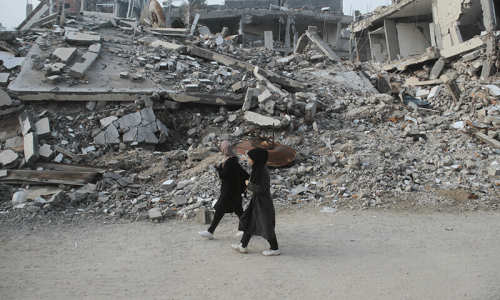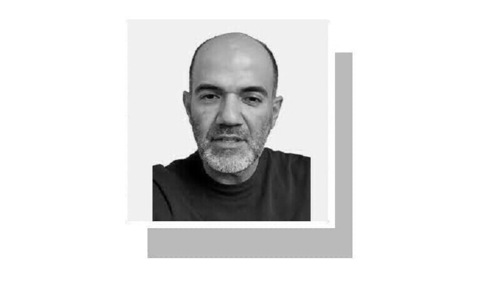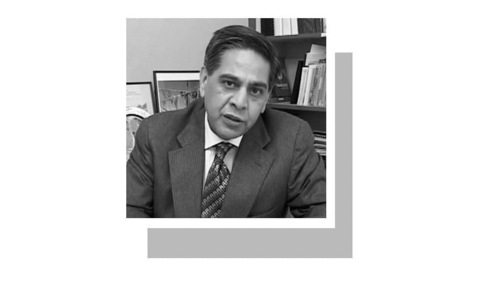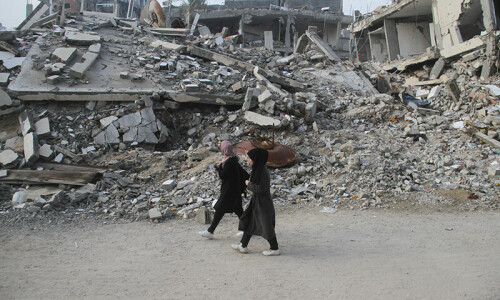A book on the life and works of a living writer is not common practice in our literary tradition. So such a book on Mirza Jameeluddin Aali should be taken as something special.
Written by Dr Fahmida Atiq, it has been published after her death by Anjuman Taraqqi-i-Urdu, Karachi, under the title Jameeluddin Aali: Shakhsiat-wa-Fann Ka Tahqiqi-wa-Tanqidi Mutalia.
Dr Atiq makes a detailed survey of Aali's life and presents a critical study of his works of verse and prose. She also digs deep into his ancestral history and studies how it influences him.
Aali is basically a poet and most of his work has been published in book form. But he has also written profusely on diverse subjects as a prose writer. Much of this has been collected and a number of volumes have been published. But much yet remains uncollected. This material needed to be retrieved from the pages of numerous well-known and not so well-known periodicals and from the files of Urdu dailies and weeklies and also from his own unarranged papers.
Atiq traced his published prose, dividing it into two categories - travelogues and columns published serially in dailies. Aali calls these columns his izharyais. The biographer has paid many compliments to these writings.
As said before, Aali is firstly and foremost a poet and he experienced a meteoric rise in the early years of Pakistan. His first verse collection Ghazlain, Dauhay, Geet was published in 1957 with an introduction by Muhammad Hasan Askari.
While Askari found much meaning in Aali's ghazals, he called him a new voice in Urdu poetry more on the basis of his dohas. And he was right. Aali's dohas should not be seen, as Askari Sahib pointed out, as copies of Kabir's or Tulsi's dohas. While drawing inspiration from them, Aali has evolved his own style as a doha writer. And it is because of him that doha has now come to stay as a poetic form integrated in Urdu's poetic tradition.
But Aali is an ambitious soul. He was not content to be known as a poet alone. He aspired to be known as a great humanitarian, a servant of humanity. On one occasion, in a fit of emotion, he declared that he was ready to sacrifice his whole poetry for the sake of helping an orphan or a widow. The next moment he may be seen promising all his energies for the service of Urdu. And with equal passion, he aspired to be a pioneer in the field of education.
And these were not hollow words. In each of these fields Aali worked with a sense of devotion and tried hard to improve the prevalent conditions. I need not go into details; Atiq has written exhaustively about his untiring efforts.
Involved in the affairs of the Anjuman Taraqqi-i-Urdu, Writers' Guild, and Urdu University, Aali gave the impression that his commitment to his real job, that of writing poetry, has waned, that poetry is no longer his first priority. But to our utter surprise, in spite of all these distractions so dear to him, Aali brought out the long-awaited and ambitiously-planned poem, 'Insaan'.
The poem is a unique venture in the world of Urdu poetry. It was conceived ambitiously 50 years ago as a multidimensional poem that discusses our history with reference to human achievements and failures. For years, Aali remained enthusiastic about this project.
But when his involvements in affairs other than poetry gave the impression of his estrangement from his ambitions as a poet, the publication of the poem running to more than 500 pages came as a surprise, clearing away all doubts about his position as a poet. It proved beyond doubt that Aali possesses a versatile talent capable of doing many unrelated things at the same time.
















































Dear visitor, the comments section is undergoing an overhaul and will return soon.